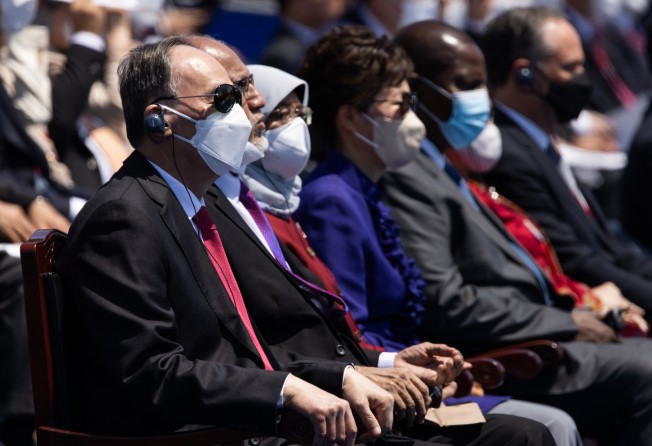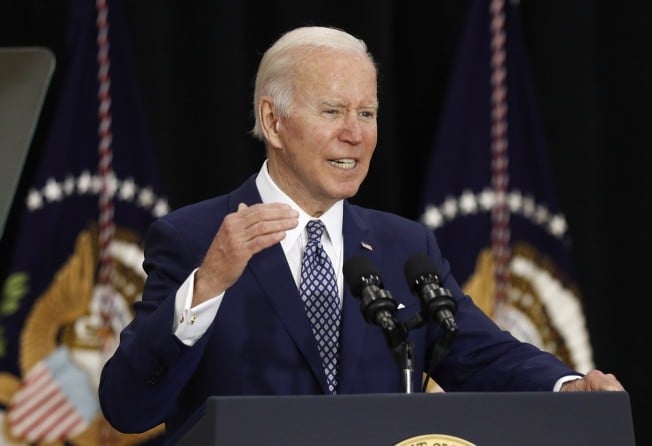
West risks regional stability by forcing nations to take sides
- Rising China sure to be on agenda as US President Joe Biden visits South Korea and Japan when Beijing is being portrayed in Washington and Europe as a growing threat

China is inevitably the underlying issue when the United States and European Union meet Asian counterparts. Communiques and statements at recent summits in Washington and Tokyo showed the nation was the underlying topic and it is bound to feature prominently when US President Joe Biden visits South Korea and Japan from Friday to Tuesday.
Beijing’s growing influence and economic and military strength are of concern, particularly for Washington as it tries to maintain its global standing. The strategy is about building alliances and creating divisions, a marked difference from Beijing’s approach, which is about good neighbourliness and cooperation.
There is nothing unusual about China’s foreign policy; it seeks to ensure good relations with neighbours.
That was apparent last week at the inauguration of South Korea’s new president, Yoon Suk-yeol, attended by Vice-President Wang Qishan, the highest-ranking Chinese official ever present at such an event in Seoul.
Wang said the nations were important cooperation partners and close neighbours with common interests and should strengthen communication and coordination.

It is a markedly different approach to that of the US and EU, which perceive China less as a partner than a rival and threat.
The first US-Association of Southeast Asian Nations summit in Washington last week aimed to build alliances while taking strategic advantage of relations.
Of a US$150 million support package, the biggest share, US$60 million, was set aside for maritime training and security cooperation to “promote a free and open Indo-Pacific”, a phrase used to assert rights in the disputed waters of the South China Sea.
Southeast Asia has a central role in the Biden administration’s strategy to build a stronger American presence in the region.
Biden’s first trip as president to South Korea and Japan, including a summit of the Quad security dialogue, will further efforts to shore up ties with allies. During the visit he will launch the Indo-Pacific Economic Framework, his key initiative for economic engagement with the region.
Another element of US efforts to counter Beijing’s influence, there are questions as to its wisdom given China is the main trading partner of many of the nations targeted.
China was similarly the focus of an EU and Japan summit in Tokyo last Thursday, with concern expressed over Russia’s invasion of Ukraine and China’s failure to condemn the actions of its ally.
The West’s efforts to build alliances in the hope of decoupling and building supply chains apart from China are not in the region’s interests.
Portraying Beijing as a threat to stability and the global order is about forcing nations to choose sides. Doing so will undermine peace, harmony and prosperity.